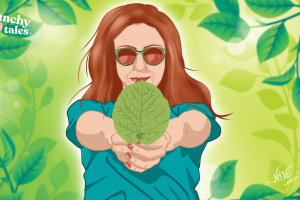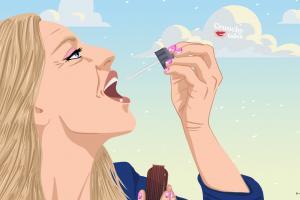Could Clean Fragrances Be Your Next Beauty Treat?
Since Michelle Pfeiffer launched her Phthalate-free fragrances, we couldn’t help thinking about all those midlife women with sensitive skin and various allergies who would benefit from a natural, organic scent.
However, navigating the new beauty trend called ‘clean perfumery’ it’s not that easy.
First of all, you need to be aware that terms like clean and natural are used interchangeably and there is a slight difference between the two. Clean refers to fragrances made without harmful ingredients, while natural is often found on products made from ingredients extracted from raw materials.
What’s more, fragrance is a term used as a type of one for all and can mean the product contains a blend of synthetic chemicals that aren’t listed individually. That makes it hard to pinpoint exactly which ingredients are irritating your skin.
In fact, most companies don’t need to reveal their trade secrets, as the FDA doesn’t require them to list the exact ingredients that comprise their scents. So most of the time we don’t know what we’re putting on our bodies.
The thing is creating a safer or more ecologically-friendly perfume is far more complicated than simply going back to nature. But with consumers more concerned about cosmetics’ impact on the environment, brands have increasing requirements to make their products as sustainable as possible, made with minimal environmental impact, using plant-derived ingredients, from essential oils to sugarcane alcohol.
Speaking to Premium Beauty News, Karole Stanislas, VP Global Marketing of Chloé – which recently has launched a “natural” version of its signature fragrance- has explained the challenges of green chemistry:
I think that consumers see natural products as a token of confidence, particularly in terms of health, rightly or wrongly so. But there are two obstacles to this trend: on the one hand, a strong industry lobby, and on the other, the fact that it is an expensive choice – he says-. I think we need to strike a balance in terms of formulation. There are many contradictory studies on the subject. On the one hand, petrochemical endocrine disruptors are stigmatised. On the other, natural resources are not inexhaustible, ecologically speaking. This is why perfume houses are developing sustainable materials or ingredients from upcycling.
Some may argue that plant-based fragrances (also known as essential oils) may be a good alternative to synthetic-derived notes, but still, they may still cause a reaction even though they’re natural (that depends on the way they are processed).
So, how can we be sure to buy a non-toxic fragrance mixture made without potentially harmful ingredients, like parabens, formaldehyde or talc?
As a rule of thumb, we should aim at clean fragrances that are transparent about their ingredients. Checking the cosmetics database of the Environmental Working Group would be a good start. In fact, this is exactly what actress Michelle Pfeiffer (now turned into a clean-beauty crusader with her new fragrance line, Henry Rose) did:
There was a time in my life when I literally lived off Coca-Cola and Marlboro Lights. But then my kids were born, and I started looking at the world through their eyes – she explained-. Before that, I really didn’t consider what went in my mouth or what was in my environment. Suddenly, like a lot of new parents, I started to read labels. Then I stumbled on Skin Deep, the cosmetics database of the Environmental Working Group. It was finally somewhere I could go to look for safer options for my family, at least in terms of personal-care stuff. Time and time again, a product would be fine, but then any added fragrance would push it into a very high hazard level.
Thankfully, the market for clean fragrances is growing, and a greater variety of scents is becoming available. However, it wouldn’t harm to try out small artisans rather than the big players as probably they are more in control of the whole process.
Also, pay attention to the brand’s mission statement, product ethos, purpose, and environmental impact. Indie companies like Cultus Artem, By Rosie Jane, Ellis Brooklyn, or Heretic, for instance, are turning into cult favourites in the clean perfume game as they craft their scents with responsibly sourced ingredients.
This shows you a more robust scope of the company rather than just checking the product label for non-toxic perfume mixtures.
Like this post? Support Us or Sign up to our newsletter to get more articles like this delivered straight to your inbox!




